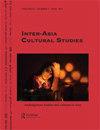Taiwanese female microcelebrities in Japan: cross-cultural romance, Japanese tourism, and the post-3.11 Taiwan-Japan friendship
IF 0.4
4区 社会学
Q4 ANTHROPOLOGY
引用次数: 0
Abstract
ABSTRACT This paper examines how three Taiwanese women married to Japanese men and living in Japan became microcelebrities by producing social media content aimed primarily at Taiwanese audiences. It argues that the emergence of the three should be contextualized within the complicated historical, political, and cultural relations between Taiwan and Japan. Their self-branding strategies emphasize the authenticity of their transnational lived experiences, which they use to mobilize microcelebrity intimacy with online fans. Their cross-cultural romances and marriages in Japan have become capital to be maximized, turning personal stories and emotions into online portrayals of cross-cultural romance and promotional work for Japan’s local government and tourist industry. The typical East Asian prescriptions for femininity that emphasize perseverance and diligence have been remodeled in their neoliberal identities in terms of abilities, resilience and strength realized through work and family. Furthermore, they have played the role of grassroots intermediaries in the post-3.11 friendship between Taiwan and Japan that flowered as a consequence of Taiwan’s substantial donations to recovery efforts following Japan’s 2011 earthquake and tsunami. This study also indicates that the economic, social and symbolic empowerment they have accrued as microcelebrities remains precarious as it is heavily dependent on their curated biographies fitting with the commercial logic of social media appealing to online audiences. This study of Taiwanese female microcelebrities aims to offer a look at how new mediascapes have been reshaped by transnational mobility/networks, social media, and the post-3.11 Taiwan-Japan dynamic.日本的台湾女性小女孩:跨文化的浪漫、日本的旅游与3.11后的台湾与日本的友谊
摘要本文探讨了三名与日本男性结婚并生活在日本的台湾女性是如何通过制作主要针对台湾观众的社交媒体内容而成为微型名人的。本文认为,三者的产生应置于台湾与日本复杂的历史、政治和文化关系中。他们的自我品牌策略强调了他们跨国生活经历的真实性,他们用这些经历来调动与网络粉丝之间的微型亲密关系。他们在日本的跨文化恋情和婚姻已成为最大化的资本,将个人故事和情感转化为跨文化恋情的在线描绘,并为日本地方政府和旅游业做宣传工作。东亚女性气质的典型处方强调毅力和勤奋,在他们的新自由主义身份中,通过工作和家庭实现的能力、韧性和力量已经被重塑。此外,在2011年日本地震和海啸后,台湾为恢复工作提供了大量捐款,台湾和日本在3.11后的友谊中发挥了基层中介的作用。这项研究还表明,他们作为微型名人所获得的经济、社会和象征性权力仍然不稳定,因为这在很大程度上取决于他们策划的传记是否符合社交媒体吸引在线观众的商业逻辑。这项针对台湾女性微型企业的研究旨在了解跨国流动/网络、社交媒体和3.11后的台湾-日本动态如何重塑新的媒体格局。
本文章由计算机程序翻译,如有差异,请以英文原文为准。
求助全文
约1分钟内获得全文
求助全文
来源期刊

Inter-Asia Cultural Studies
Multiple-
CiteScore
0.90
自引率
20.00%
发文量
22
期刊介绍:
The cultural question is among the most important yet difficult subjects facing inter-Asia today. Throughout the 20th century, worldwide competition over capital, colonial history, and the Cold War has jeopardized interactions among cultures. Globalization of technology, regionalization of economy and the end of the Cold War have opened up a unique opportunity for cultural exchanges to take place. In response to global cultural changes, cultural studies has emerged internationally as an energetic field of scholarship. Inter-Asia Cultural Studies gives a long overdue voice, throughout the global intellectual community, to those concerned with inter-Asia processes.
 求助内容:
求助内容: 应助结果提醒方式:
应助结果提醒方式:


